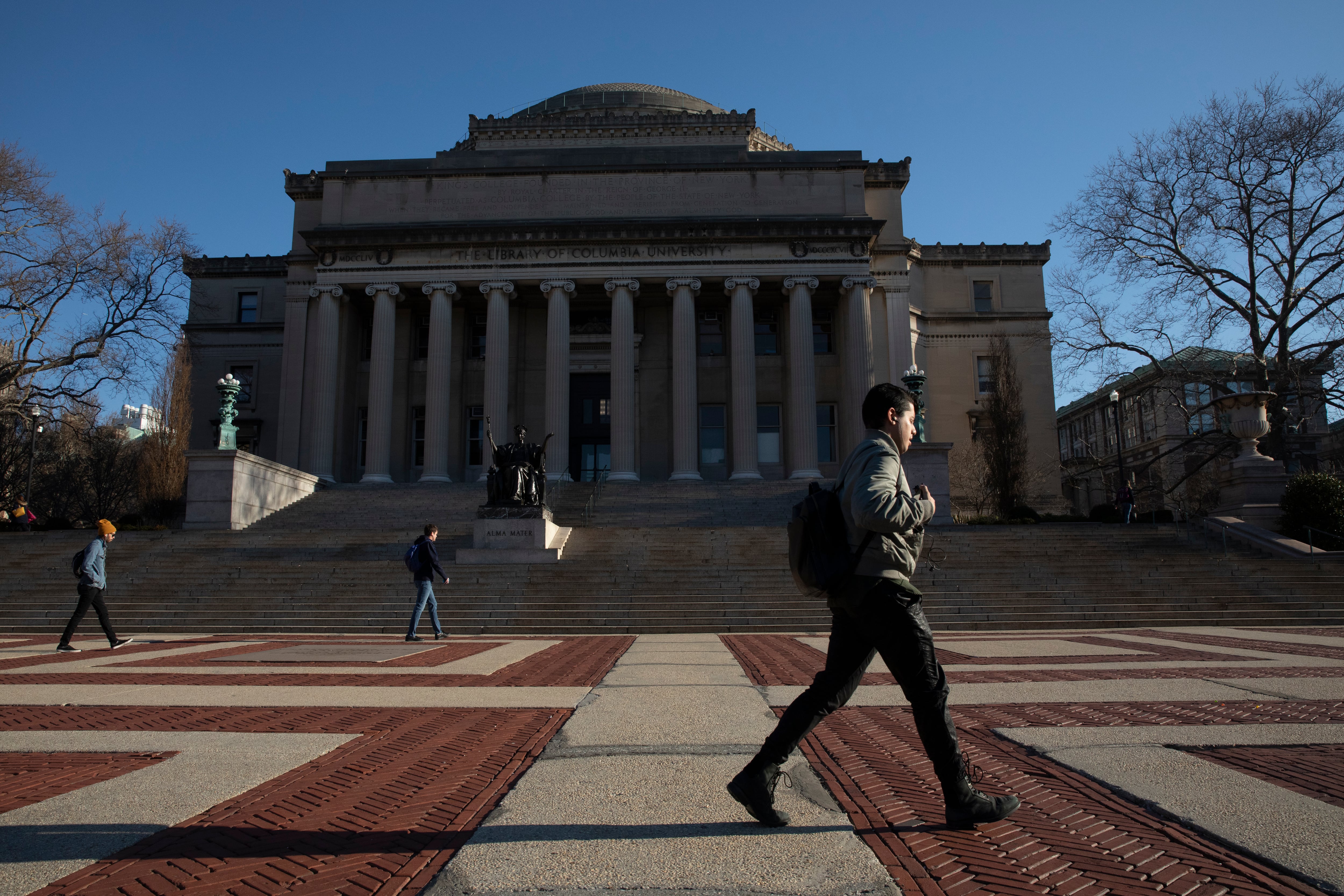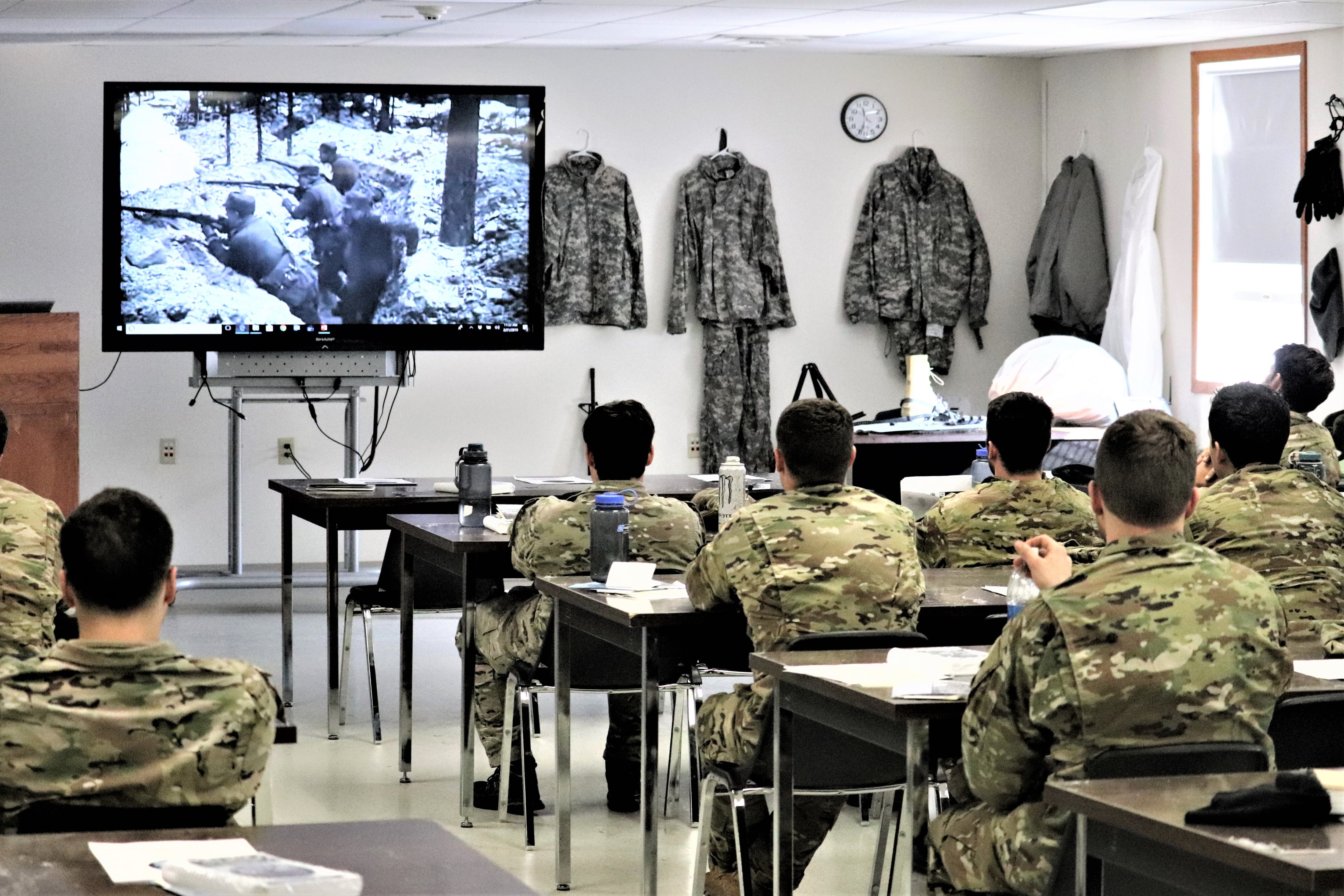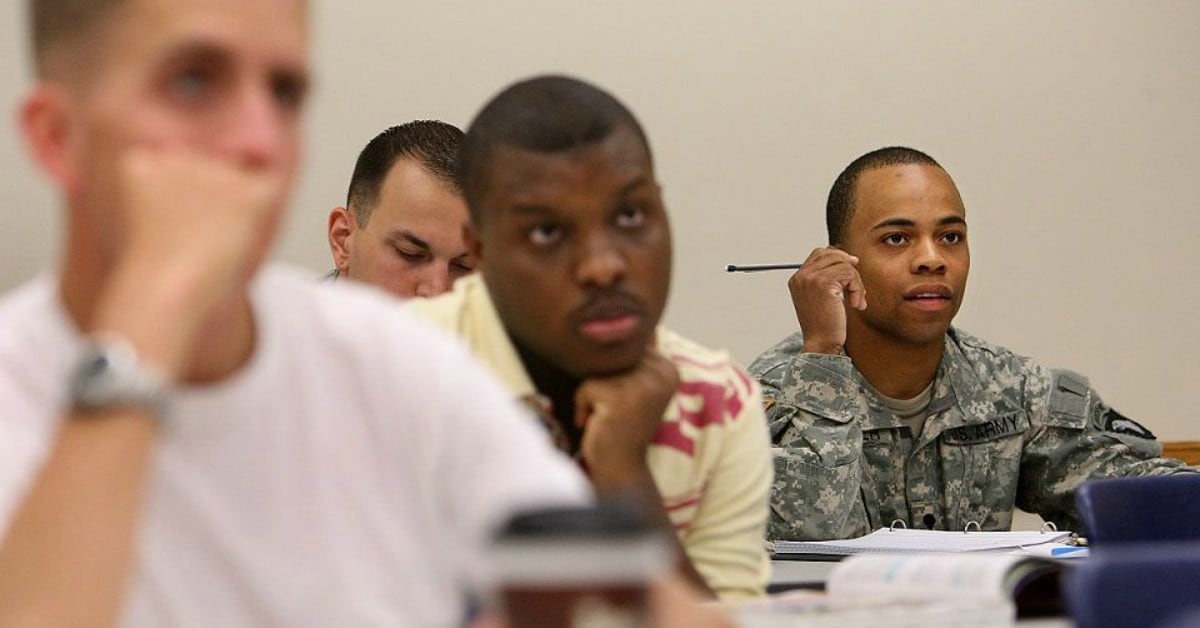President Donald Trump late Tuesday signed into law a second emergency GI Bill fix for student veterans whose studies have been disrupted by the coronavirus pandemic, protecting work-study programs and providing extra insurance in the case of college closings.
The move came just days after Congress finalized the legislation without objection in abbreviated House and Senate sessions. It also came just a few weeks after lawmakers rushed through another legislative package to ensure that student veterans would not see their education stipends halted as colleges shifted from in-person classes to online learning.
Hundreds of college campuses nationwide have shut down nearly completely in recent weeks — along with many public schools, places of worship and local businesses — in an effort to slow the spread of the illness, which has caused more than 54,000 fatalities nationwide.
RELATED

Both Republicans and Democrats on Capitol Hill hailed the president’s signature as much-needed relief for veterans dealing with those sudden changes in their education plans.
“Throughout this crisis, I have heard from too many student veterans about the uncertainty the COVID-19 pandemic is causing,” said Rep. Mark Takano, D-Calif., and chairman of the House Veterans’ Affairs Committee, in a statement.
“By signing my bipartisan legislation into law, we can finally grant our student veterans the peace of mind that their benefits won’t be impacted by this crisis.”
Committee ranking member Rep. Phil Roe, R-Tenn., echoed that sentiment. “With colleges and universities transitioning to online courses, students should be focused on their studies, not worrying about whether their benefits will continue.”
RELATED

Under the latest measure, students using GI Bill programs can keep receiving payments for work study programs through the remainder of the semester, even if students cannot reach their place of employment.
It will also make sure that, in light of the current emergency, students’ GI Bill housing payments will continue even if colleges fully close down. And veterans could see any of this semester’s lost entitlements restored if their institution closes down or if they are forced to withdraw from school for coronavirus-related issues.
About 950,000 individuals received some type of veterans education benefits last year.
Leo covers Congress, Veterans Affairs and the White House for Military Times. He has covered Washington, D.C. since 2004, focusing on military personnel and veterans policies. His work has earned numerous honors, including a 2009 Polk award, a 2010 National Headliner Award, the IAVA Leadership in Journalism award and the VFW News Media award.




